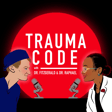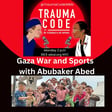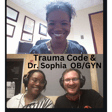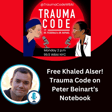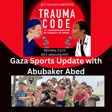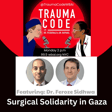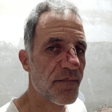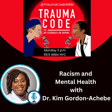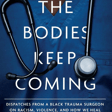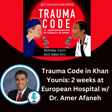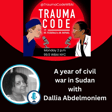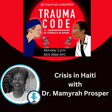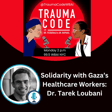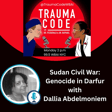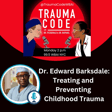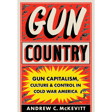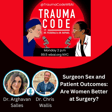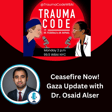Become a Creator today!Start creating today - Share your story with the world!
Start for free
00:00:00
00:00:01

Update Sudan: War and Culture with Dallia Abdelmoniem
We talk to our favorite Sudanese correspondent Dallia Abdelmoniem from Cairo about the Sudanese music and culture as well as latest developments in the civil war, violence in gezira, genocide in Darfur, lootingin Khartoum and the Relationship of the UAE and the RSF
Transcript
Introduction to Trauma Code
00:00:07
Speaker
Trauma Code to New York City, Trauma Code to WBAI. I am Dr. Simon Fitzgerald, a Brooklyn trauma surgeon and surgical intensivist. And I am Dr. Cassandra Rafael, an adult and child psychiatrist. Welcome to Trauma Code. Together we will focus on healing of mind, body, and community from trauma. We'll discuss how wellness fits into the culture at large. Join us on Monday at 2 p.m. on WBAI.
Conflict in Sudan Overview
00:01:57
Speaker
I'm all by no distress I just wanna do my best
00:02:20
Speaker
Thousands killed, over 5 million displaced and many more trapped in Khartoum and hotbo at cities across Sudan with little access to basic necessities. This war is a battle for power. The country's army said it would only last a few days, but it's now been raging for months.
00:02:40
Speaker
Welcome back to Trauma Code. This is Dr. Simon Fitzgerald, live in the studio. Wow, it's already 2-0-5. And that opening was the song, Cartoon. Who is that? It's at Odyssey. I've almost forgotten now. and I'm sure I'll be corrected soon because we have on the line ah our favorite ah Sudanese correspondent, Dalia Abda Monet, who's been on the show at least twice, once from London and once from Cairo, to update us on the situation in Sudan. um But before we get to our interview today, I wanted to take a moment um because in order to be able to call up our Sudanese correspondent, our Gaza correspondent, and speak to um leaders in the field of medicine and surgery and and journalism and arts that I believe in. ah What gives us the reach and the ability to do that is the legacy and the the broadcasting capabilities ah of the ah the cultural asset of WBAI. So I want to ask you, take a moment, if you appreciate the show, we appreciate you. Please, you know, go online, call in, become a BA buddy, support the show,
00:03:46
Speaker
um And ah Reggie, do you have that number on hand if anyone prefers to call in the old-fashioned way?
Listener Support and Incentives
00:03:51
Speaker
ah Yes, the the number is and that is also 833-922-4692.
00:04:04
Speaker
But you can definitely find it online and ah you know ah the the I guess they've been saying on BAI, the show is the premium. But definitely if anyone shows me that that they've supported the show with something like $100 or a meaningful contribution of that sort, send me an email to showtramacodewbai at gmail dot.com ah or find us on social media, tramacodewbai.com. And in the past, everyone who's done that has got a signed book. So if anybody supports the show ah and sends me your information, I think, for example, we can get our friend, Rob Gore, who's been on the show at least twice with a recent book on ah treating and preventing trauma and violence in Brooklyn as the founding
00:04:48
Speaker
a leader of Kavi Kings Against Violence initiative. So I'll be happy to get that signed book to anyone who supports the station on behalf of this show for around $100. So anyway, we're going to be talking about supporting the show, making it happen, but I do also want to value and recognize the time of our guest, the Sudanese journalist Dalia Abdomo-Naim is on the line to tell us what's been going on ah in Sudan, and and obviously, before right before we switch to her, we'll have a little musical break in a minute.
Global Violence: Focus on Gaza and Sudan
00:05:16
Speaker
But obviously, if we're pay attention paying attention to the news, we see the grim toll of ah the violence in Gaza, particularly in North Gaza, but in all parts. um I feel like our previous guest, Abu Bakr Abed, our Gaza correspondent, if I follow him on social media, I see a new prominent um death or massacre every single day that that he has direct access to as a journalist. and so
00:05:39
Speaker
um In addition, the the ongoing violence against healthcare workers, the attack on Kamal Adwan Hospital, um the forced evacuation, ah and you know nude like in in a concentration camp of ah the entire, especially male staff, ah including ah the the lead doctor whose name escapes him right now. His son was killed in the attack on the hospital. um And of course, the violence is also spreading to Lebanon. Three more journalists were killed in Lebanon as well as three in Gaza.
00:06:07
Speaker
So, we you know, we continue we continue to pay attention as while we focus on what's going on in Sudan, including genocidal violence in Sudan, particularly in Darfur and elsewhere, ah we keep in mind that this is part of of a global um sort of political economy of violence. And I think standing against genocide in one place is the same fight as standing against genocide in all places. So ah why don't we do this? Let's take a short musical break. Let's check our levels and we'll have on the line Dalia Abdelmonaim,
00:06:35
Speaker
Our Sudanese correspondent to update on the situation in Sudan.
Sudanese Correspondent's Insights
00:08:16
Speaker
Welcome back to The Trauma Code. This is Dr. Simon Fitzgerald live and in studio. And ah we have on the line, I believe, our good friend, our favorite Sudanese journalist, Dalia Abdomo name. Dalia, are you with us? Can you hear us?
00:08:34
Speaker
just Oh, we had her for a second. Yes, hi Simon, how are you? Excellent, we hear you speak up. Can you hear me? Yes, yes, we hear you. It's great to hear from you. ah Maybe I'll just turn up my monitor. um ah Great to hear from ah from you again, and and ah how are you doing? And I'm just curious, where are you joining us from?
00:08:57
Speaker
I'm in Cairo, Egypt. um'm I'm currently based here for the time, for now. So I keep saying this in the hopes that I'll be going back home soon, but I don't think that's going to happen any time soon. And we we each we've had you um on the show twice, and and I always kind of hate to do it to walk down, but I do want to kind of orient um the people who are joining us for the first time, haven't heard the previous interviews. um But you you came to my attention as someone uh... as a journalist who wrote about your uh... sort of uh... evacuation through the desert of a cartoon under siege i mean i realize your history went back further as an active participant in uh... you know the Sudanese revolution that toppled al-basheer and also a rich family history in the region so besides that brief uh... introduction anything else that you want to say to kind of orient about how you got here
00:09:50
Speaker
um to to get our listeners a little bit understanding of your history? um Well, i've in my line of work I've pivoted towards advocacy in terms of Sudanese civic society because we as civic society, act you know, workers, we believe that there is no one that's actually talking or advocating for the Sudanese civilians.
00:10:15
Speaker
you know, whether it's the army or the militia that's fighting the army or whether it's even the the political blocs, no one is centering the civilians. And like like in any war, in any conflict, it is the civilians that pay the price.
00:10:31
Speaker
And in terms of Sudan, we have the highest number of displaced people in the world. ah we We've hit 11 million. That's the equivalent of the population of three European countries, Latvia, Estonia, and I think Norway.
00:10:48
Speaker
So that's crazy when you think about it, like three countries, their whole population, that's number of displaced Sudanese, not counting the number of Sudanese who have become refugees. ah The fact that more than half of the Sudanese population, more than 25 million are facing acute hunger. There is famine in this day and age, people are dying because of lack of food. And this lack of food is because food is being used as a weapon of this war by both warring sides.
00:11:17
Speaker
by not allowing aid and aid convoys to pass through and alleviate the misery that the majority of Sudanese people who are still in Sudan are suffering from. So this is my line of work now. I just advocate, I go, I attend meetings, I speak to, because I believe there needs to be ah ah ah a shift in policy, a change in policy in how we approach and how we deal with conflict.
00:11:42
Speaker
you know I've been to so many protests in my life, but I've come to the conclusion that these protests do nothing. You need to change the policy. You need to you need to go to those who are in government, who have the ability and the power to do something. And that's what my line of work is now.
00:12:00
Speaker
um And just to orient us about, you know, understanding Sudan of 2024, we know that, you know, that there was a popular movement that toppled sort of a dictatorship in Omar al-Bashir, and he was closely aligned right a generation ago with the violence in Darfur, the Janjaweed, which evolved into his private army and the RSF.
00:12:23
Speaker
um And when there was the revolution overthrowing al-Bashir, the army collaborated with this rapid support forces, correct me if I'm wrong, and over overthrew a budding um but optimistic um ah ah civil society um in in creating a ah civil ah government. um Anything else that you want to say about how how politically and and and in in the crisis of war we got to this moment in Sudan?
00:12:55
Speaker
Basically, it's it's it was a power play between both, as in you're completely correct in your summary of what's happened in since 2018 till now. And what what basically happened is that both the ah RSF and the Army They were both colluding for power, as in who would have the power. And it comes it came down to they both, in my opinion, they both are the same, except one is the official state entity, which is this army, and the other is a militia. A militia that is made up of mercenaries, and a militia that is made up of the Janjaweed, just because they've had a change in name does not mean they've changed that who they are as as ah as a group. as ah as a group
00:13:41
Speaker
and the result is this current war that we've been embroiled in for more than a year and a half now and politically they both say the same thing yet they both you know they keep their actions betray the words that they keep repeating as in you know we want to secure Sudan we want a civilian you know government to Sudan but they're both working on, ah you know, arresting, detaining, torturing and imprisoning civic actors and grassroots workers and volunteers who are actually on the ground trying to help.
00:14:20
Speaker
so their actions betray their words. And like I said, you know, the the gen ah the ah RSF is under, the violations that the ah RSF are committing are just horrendous. I mean, it's a long list of violations from gang rapes to sex slavery, to torture, to mass graves, you know, to just, you know, complete raising of villages, completely of all their inhabitants, killing men and boys,
00:14:48
Speaker
on the ground and at the same time you have the army with their indiscriminate aerial bombings, albeit the violations committed by the army are not equal to the RSF, but in my book a violation is a violation.
International Community's Role
00:15:01
Speaker
If you endanger the lives of civilians and you know this area that you're attacking is civilian pop populated by civilians, then you are you are violating, you're committing a crime, it's a war crime.
00:15:14
Speaker
And what's even worse in my book is that then the absolute silence from the international community. We get a lot of statements, very lovely words being written, but no action, no follow-up. And we in civic society have been pushing for the protection of civilians becoming a priority.
00:15:35
Speaker
But we keep getting brushed aside and we're pushing for it because we believe that protection of civilians is not contingent on there being a ceasefire. They're both separate. they can you know civilian the so the Civilians are the major casualties of this war definitely in so many shapes of form and forms. There's no protection for them.
00:15:55
Speaker
As you were saying, as those um militaries and militias had turned on the people once they turned on each other, um the violence only escalated, tore Khartoum apart. and And as you were describing, that the genocidal violence in Darfur, and it's kind of interesting, right? the the Almost, you know, you're in Egypt, right? On one neighbor to the south is Sudan, on the other neighbor is Gaza. and um There's a way in which the silence of much of the leadership of the world ah on Gaza and the absolutely, you know, genocidal violence there, because of that loud silence, the quiet silence is, you know, just to the south in Khartoum and there seen in in Sudan and Darfur in particular, but other parts of the country
00:16:41
Speaker
And there there seems to be no um either willingness or motivation for world powers to to try to stop the arming of the violence and the armed belligerents. Do you want to talk at all about who do you think the international players that are most supporting it the way the United States is with Israeli military and who is in a position of de-escalating and disarming this violence in Sudan?
00:17:08
Speaker
Yeah, absolutely. Unfortunately, both sides have their backers and their supporters. When it comes to the RSF, it's been well-documented that the United Arab Emirates is their number one supporter in terms of ah support in terms finance support, financial support, and in terms of weapons. They've been ah smuggling in weapons under the guise of it being aid.
00:17:33
Speaker
And it's been documented by the likes of the New York Times, the Washington Post, and even the United Nations fact-finding missions has called out the UAE as being the main supporter for the ah RSF. And in the same time, when it comes to the army, they have so they found support in the likes of Iran.
00:17:50
Speaker
and with the likes of Egypt, with the likes of Qatar, who and Turkey have all supplied them with weapons. And in the midst of all of this, you have Russia playing both sides with the Wagner group supporting the um RSF and the Russian government supporting the army. So it's a mix. It's just crazy. And at the same time, when you bring this up with, you know, actors in the international community,
00:18:14
Speaker
i got I got told by one so-called political actor, as in their economic interests and economic ties with the UAE, does not allow them to call out the United Arab Emirates for their actions in regards to what's happening in Sudan.
00:18:29
Speaker
And if that's not a slap in the face, then I don't know what it is. Because when someone tells you that, what can you tell them? What can you tell them? Oh, forget your economic, your fight your national interests and look at us. Because end of the day, it's a country in Africa, in East Africa, with a history riddled with war and conflict. And so what? And at the same time, it's you know these same actors who have interest tied up, intertwined with all these countries that have been that are a part in this role. At the same time, they're the only ones who can actually you know pressure the likes of the UAE, for example, to stop arming the RSF. One way of doing that is when ah the ah the rapper, Macklemore, canceled his gig in Dubai and he
00:19:21
Speaker
eight did He released a statement um on his social media account, saying the reason why he's canceling his concert in Dubai is simply because of the UAE's role in the war in Sudan. Now, that PR hit was huge, because if there's one thing someone like the UAE cares about is their image, that they are this benevolent, developed you know, country and city and it's welcoming with all the tourism and it's a tax haven, you know, and so that was a major blow for the UAE and bonus for us Sudanese. And can I say one thing I was surprised wasn't a bigger story in sort of my small circle, it was the um
00:20:04
Speaker
diluting of the ah national um museum and cartoon with just ah really thousands of years of historical um artifacts and things like this. Mine is saying this was being liquidated, much of it through the UAE. Maybe you can talk about that. I was surprised that there was very little about this. um It was not much of a scandal at at the higher levels on the national or international stage. Would you agree?
00:20:31
Speaker
Absolutely. I mean, but then i I look back at during the Iraq war when the Iraq, the Iraq museum was also, you know, ah looted and artifacts were stolen and sold to private collectors. Money unfortunately supersedes. I mean, there was a push in our, from some Sudanese in regards to example, contacting eBay and asking eBay not to allow any artifacts to be sold on its platform.
00:20:59
Speaker
And that worked. And there were a lot of archaeologists and you know curators and so on who spoke out. But what they said fell on deaf ears because there's not that much attention on Sudan.
00:21:14
Speaker
And for whatever reason, you know even media, media like we get an um every now and then we might get like a buzz, you know several articles being written on Sudan, but that's it. Or we get relegated, not to the front page, but we get relegated to the fifth or sixth page, you know like a small column or something. There is an inherent bias when it comes to what's happening opening in this part of the world. And there's also the the like the fact that ah There's people are conflict weary. I mean, if you look back at just at the past five years, there's been one conflict after the other. Ukraine is still going on. Gaza has been going on. What's happening in Congo, so many different places. So in a way, I can understand why there's a lack of interest. But what befuddles me is the lack of, you know,
00:22:04
Speaker
action from people whose work this is their line of work to ensure that civilians are protected, that you know and know wars come to an end. And even within the region, within Africa, the African Union has been quiet. And this is our regional leader and block, and they've been quiet. They haven't been doing much. So if our own regional block isn't doing much, then what does that say about the rest?
00:22:28
Speaker
Well, and if you're just joining us, we have, ah this is the trauma code, we have Dalia Abdelmonim on the line from Cairo, kind of getting an update on on what's going on in Sudan and thinking about how we can collaborate and support movements ah for you know freedom and to celebrate life in Sudan. And and while yeah while we have you on the line, Dalia,
00:22:48
Speaker
I don't know if you could help us understand, you know since we had you last on the show, you know what has changed on the ground, if anything? you know My understanding is that you know around Khartoum, the government has retaken some territory and there's um you know I don't know how much benefit that has to the average person, but we know also in other areas surrounding Khartoum, and correct me, Jazira State, I'm not sure even where that is on the map.
00:23:14
Speaker
um There has been expansion and and new violence and new atrocities um from the ah RSF. um Anything that that you would just want to say about the update? you know I think we had you last on around the one year mark, one year of civil war.
Recent Sudanese Events
00:23:28
Speaker
What's you know what's the update since then?
00:23:31
Speaker
um You're right in terms of the army making inroads in regards to Khartoum, which is the capital and it's made up of three cities, Andurman, North Khartoum and Khartoum. So they have made inroads in regaining control of the city, but not fully, but not full control of the city. Al Jazeera is a state, it's in central Sudan. It is the agricultural heartland of the country. This is where every single fresh produce that Sudan has is comes from and is exported and used locally. It's our bread basket and it's not just Sudan's bread basket, it actually is a bread basket for the whole continent and Sudan is a country huge, very rich in resources.
00:24:16
Speaker
Hugely rich, I mean, anything you can think of, we have water, we have the Nile, gold, we have ah a you know loads of gold mines that haven't even been discovered, petrol, minerals, agricultural, the ports to the Red Sea axis, and we're also the gateway into Central and Western Africa. So geopolitically and resource-wise, Sudan is the perfect place to have to have control over.
00:24:46
Speaker
And Al Jazeera is ah what happened was that an RSF leader in Al Jazeera, you know, switched sides and sided now with the army. So the ah RSF for the past three to four days has been going on like a vengeance campaign in Al Jazeera, the state of Al Jazeera, especially in the eastern part of the state. Basically, they have, you know, ah villages have been completely vanquished of every all this, order all the all the inhabitants. There's one thes several reports, there's still not official confirmation, but like in one village, the 500 inhabitants of this village were completely wiped out. Boys and men were killed and there were reports that more than 150 women and girls opted to take their own lives than to face the sexual violence hand you know meted out by the ah RSF.
00:25:45
Speaker
And there's also been videos and and reports of men being bundled into trucks and taken to, we don't know where, there's no news of them. I mean, in within three days, more than 50,000 people have been classified as displaced. They've been forced out of their homes. And these are the some of them ah have been displaced three times previously.
00:26:09
Speaker
So they moved from Khartoum, so on, into Medinie, the capital of Al Jazeera. And then from Al Jazeera, they kept moving outwards to the outskirts where it was supposedly safer. And throughout all of this all of these violations being committed by the RSF, there's been no reaction from the army, nothing. So it's like,
00:26:32
Speaker
Collateral damage, you know, it's a phrase that I hate, but its it's it it exactly explains what's happening in Sudan in regards to what's happening to the civilians. They are collateral damage. So whether a hundred of them are killed or a hundred thousand are killed, it doesn't matter to either side.
00:26:51
Speaker
Well, and again, if you're just joining us, we're talking with Dahlia Abdomo name about ah updates from Sudan and one we have, we're gonna have a little musical break and we'll come back and on the second half Dahlia, if you have a little bit of patience to stick with us, I want to talk and think about what we can do um from WBAI and from the five boroughs and and beyond that we reach out to what we can do to extend some solidarity ah to Sudan and you and the work that you're doing there. So let's take a little musical break and we'll be right back on the line on Tramaco with Dalia Abdemone from Cairo.
00:28:25
Speaker
I can't be moving with that
00:29:03
Speaker
Welcome back to The Trauma Code. This is Dr. Simon Fitzgerald live and in the studio and that was just I think Nadine L. Ruby, the single God that just came out I think last month. And you're joining us on The Trauma Code on WBAI on 99.5 and I want to take another moment ah We're going to have Dalia Abdomo named back on the line from Cairo to talk about what's going on in sodan and Sudan and how we can lend some solidarity. But the way that we're able able to have that reach is because of the broadcasting of WBAI. And in that kind of fundraising season, I wanted to definitely ask you to take a moment, go online to WBAI.org, give to WBAI, become a WBAI buddy.
00:29:46
Speaker
um you know ah is Is this premium it's product not the premium that is worth that kind of support? and Definitely, I've said before, anyone who supports the station in around $100 area on behalf of this show, then reach out to me. Let me know. Trauma code WBAI at gmail dot.com or trauma code WBAI on your social medias, medium media. um And let me know and I'll try to send you out a signed book of one of our guests. I think um the next one is going to be ah Rob Gore's book on um and treating and preventing violence amongst young people in Brooklyn. So one more time, go online, TraumaCodeWBAI.org, and we'll have the number but at the beginning and end of the show that you can call in as well. um But again, while we have you on the line, Dolly, are you still with us? Did I lose you there?
00:30:40
Speaker
Hi, yeah yeah, I'm back. and Sorry, I had lost my connection for a bit. No problem. And one of my favorite things about having you on Dalia's is um the the wealth of um Sudanese music and art and culture that you've shared with us um you know over the last year or years that you've been coming on the show. ah We played a couple of songs so far, one of them we've played before. Is that Odyssey, the song cartoon? um No, it's my best.
00:31:06
Speaker
Abbas, thank you so much for for correcting me. But it was funny because there's ah there's a spoken verse part where she's where the the singer is saying there's five million displaced. I mean, in the time since when that song was released till now, the number of displaced has doubled. It's now 11 million. So I was listening to it and I was like, my god. It's dated already.
00:31:30
Speaker
Yeah, it's just incredible how things move so fast. um hittting of sometimes Definitely. in it But I've come to appreciate that that song. And I did let that play a little bit to to think about and talk about with you how much has changed since that song first came out.
00:31:45
Speaker
um but and And we just played on a more recent song ah by Nadine Alruby, turned me on to her music. Anything else you want to say about um those ah songs or any other music that that coming out or that you've heard that you're really excited about or that brings you peace in difficult times?
00:32:04
Speaker
um The second song you played is it actually it's a reave worked for a song version of a very old classic Which was one of my father's favorite so whenever I hear whenever I'm missing home, or I'm feeling Did we lose her I don't hear Hold on a second there won't be some technical difficulties if you hear me Dahlia we lost you for a minute I
00:32:33
Speaker
All right. Well, it looks like we lost the connection for a minute, so why don't we do this? We were just, unfortunately, just getting to one of my favorite parts of the show, in the interviews with Dalia Abdomo Naim, the music and cultural references, um and and she was correcting me, so I don't want to go too far out ahead of her and and get some things wrong. but Um, why don't we do this? Let's have, we have some more music lined up. Why don't we ah take a short music break? Um, and then we'll try to get Dalia Abdom on a back on the line. Uh, because I also wanted to ask, you know, how, what can we do from New York and other parts of the world to lend some solidarity, uh, to those doing important work in a Sudan in the same way that we're going to ask you guys to lend a little bit of solidarity to support the station. Go online at wba.org, give to WBAI.
00:33:24
Speaker
And I don't know if we have that phone number handy, you can also call in right now and leave a pledge by the phone line. So let's take a little musical break and then we'll have Dalia Abdonim hopefully back on the line.
00:33:46
Speaker
I am. a flop. So he gave me a shot, but I don't believe him. I get to a little higher for the day.
00:35:36
Speaker
butish of but calllas they get the love I I
00:36:15
Speaker
Welcome back to The Trauma Code. This is Dr. Simon Fitzgerald-Lavin in studio for WBAI. And I think we've got Dalia Abdomone back on the line. Dalia, can you hear us?
00:36:26
Speaker
Yes, hi. Sorry, sorry about that. No problem. Well, we're reaching across the world from ah downtown Brooklyn in New York City to Cairo, Egypt, talking about Sudan. um So ah to be expected, and we're just talking about ah Sudanese music and culture. um You were just talking about ah the nostalgic song on today's show. And you just kind of said it reminded me of your, it reminded you of your father and it cut out. Anything else you want to say about that or about the the song we played in the interim?
00:36:54
Speaker
um no i'm just what i'm ah like the The likes of Nadina Ruby and so many other Soulja Boy and so many other young hip-hop, R and&B, you know, rap artist and soul singers, they do a lot for Sudan. like There was ah a fundraiser in New York just a few nights ago you know and You know, and it has several artists. I think there's even like a ah house DJ.
Artistic Advocacy in Diaspora
00:37:21
Speaker
His name is DJ MoMA. I think he's from Queens. So these artists, this is what they do. This is what they can do. They hold fundraisers. They hold these events to talk about Sudan and to share our culture.
00:37:35
Speaker
And it goes a long way because it highlights because e you know you could be passing by and you see this poster and you pop in and you go and attend and you learn about the you know what's happening back home. So we they you know people like these young singers, these up and coming young singers, they go a long way in changing, especially the you know getting the message out, especially amongst the younger generation Z or I don't know what they're called now. So it makes a huge difference because if we've seen anything by from what's happening the past year, it's that younger generation that's actually more clued in, more up-to-date and more informed.
00:38:18
Speaker
and they're calling out for change and for a better world for them and for the future for future generations and so I think that goes a long way and all the on all the fundraising that they do it goes towards you know community-led kitchens which feed thousands of people it goes towards safe zones for kids in where they can have arts and craft and music and reading, you know just to feel that you know they're okay. you know it's it's It's a form of therapy for them. It goes a long way to getting medical aid to Sudan. So every little bit of donation that goes to these fundraisers or goes or goes directly to you know you know these initiatives that raise money for what's for for people back home, it really does help.
00:39:05
Speaker
You know, like $500 if you raise, for if you donate, let's say $100, that will feed maybe 10 to 20 families. And that's a big amount, you know, and with the war and the our economy has crashed. So inflation is super crazy. There is no work and people do not have jobs. And they rely on community aid in order to survive.
00:39:32
Speaker
Well, you got me kicking myself that I missed it. I remember seeing the promotional poster and then I forgot about it and I'm i'm upset to to realize that I just missed it. um So we'll definitely have to to be tuned into those kind of cultural events and fundraising events in New York, um'm like the one that you just talked about with Nadine L. Ruby. um Any of these organizations that that we can support or any other kind of um events or cultural movements that we should look out for ah to lend some solidarity with ah with those efforts.
Supporting Sudan: How to Help
00:40:04
Speaker
In terms of ah fundraisers and crowdfunding, yes, there's a number. There's like the Sudan Solidarity Fund. I think it's based, it's coming out from Canada. There's the Sudanese American Physicians Association, which is SAPA. They raise, they collect funds for medical, for medical care and they set up clinics. So that goes a long way to helping as well.
00:40:29
Speaker
There's another one called Sadiya. They have several funding crowdfunding options. One is for the community kitchens, another is for ah you know getting kids into say ah creating safe zones for kids. I'll send you the links once this interview is done.
00:40:47
Speaker
So you can post them, but and they're all verified. I've donated to all three of them. So I know that but whatever, even if you donate $5 or $1, I know times are tough for everyone. I completely understand. But I always say, you know, a little goes a long way and one plus one will create even a bigger, you know, windfall for a lot of these organizations.
00:41:09
Speaker
And in regards to cultural events, I think ah if I hear of anything, I'll pass them on to you. but they usually i mean So far, I haven't heard of that many except for that one in Brooklyn that happened a few nights ago. you killing me i didn't have you yo last week but I'm sorry. I know last week was crazy for me, but next time I'll give you a heads up of like this is happening in your neighborhood. Excellent. Well, we definitely appreciate Dalia and definitely, you know, in listening to these stories, we don't want to be just warriors into to violence and displacement and war and things like that. So I think
00:41:47
Speaker
Having an opportunity to to to participate in in that kind of healing, even if it's almost just symbolic, I think is also, at least I appreciate, hopefully the audience can appreciate it as well. um and And definitely why we have you on the line, anything else um that you want to to to say to New York about, you know, either the work that you've been doing that you've been doing or or shining light on anything else with regards to Sudan that deserves our attention.
00:42:15
Speaker
speak to your representatives you know push i mean i know the united states is coming up towards a presidential election and that's i think that's next week right so that's take i think For me right now, I'll have to say let's wait and see who emerges the victor in and the like in the race, in the presidential race. And then, because for us ah as as advocates in civic society, we're also waiting to see who will be in the White House, because that will change how the United States and members of the Congress and Senate will will act towards what's happening in Sudan. But at the same time,
00:42:57
Speaker
I just say read. you know true you know Don't just be bogged down on what's happening in your area. you know I know what's happening in the United States. I know what's happening in in Congo. you know Find out more. See how you can help. you know There's local initiatives, I'm pretty sure, in enlighten you know especially in places like New York and in D.C., where there's a large Sudanese-American population.
00:43:20
Speaker
reach out to them and see how you can help donations. You know, even donations of clothes goes a long way because all of these have basically when they left there, they ran away from there. They ran from their homes. They left with nothing but the clothes on their back. And I was one of those people. When we left our house, we left. I left with nothing but my passport.
00:43:39
Speaker
my phone and my phone charger. We just left everything behind. We've had to and I'm fortunate enough that I'm able to start from scratch to rebuild somewhat something. But for so many other millions of other Sudanese, they don't have that luxury. So every little does help.
00:43:57
Speaker
Well, we definitely appreciate you giving us a window into everything that's going on there um and definitely look forward to having you on the show again. And and I'm definitely, if you're interested in the kind of support that Dalia has been talking about, we'll have some links on the show notes and um definitely if you reach out, we'll we'll share that as well on our social media of ah where to support in Sudan for these efforts.
Continuous Advocacy for Sudan
00:44:20
Speaker
So definitely Dalia, always a pleasure. Thank you for having us, for having the time to come on the trauma code And we look forward to talking to you soon. Thank you, Simon. I appreciate you. You continue you continuously advocate for Sudan, and that to me is amazing. So thank you. All right. Well, we appreciate you and and definitely look forward to it. ah Let's have a little more musical break, and then we'll come back on ah with another ah little drive to to bring some money up to support the station, WBAI, or reach our broadcast. Go online right now at WBAI.org, and we'll share the number that you can call you but either before or after this song.
00:45:48
Speaker
You will consider to fish up Hawaii Welcome back to the trauma code. This is Dr. Simon Fitzgerald live on the air on WBAI and that was just our favorite Sudanese correspondent Thalia Abdel-Monaim on updates on what's going on in Sudan and definitely I'm gonna at the end of the show um get those links that she's sending us and I plan to support ah the Sudanese-American Physicians, SAPA group and and see if maybe they're interested in coming on and sharing the work that they're doing on the trauma code. That's exactly the type of you know a reach and um one of my favorite things about doing the show is that I can reach out
00:46:36
Speaker
to people who I may have never met and just based on the work that I do in the hospital or that I've ah written about or that, you know, the show, the station, that that um that sense ah ah of purpose and and shared context allows me to reach out and talk to people. And so that's why if if you appreciate what we ah do on the trauma code, then we appreciate Your support for the station for WBAI, go online at wbai.org. And Reggie, do you have the the phone number, the fundraising phone number handy? um If not, we'll have it um in a minute. and and And that's what, you know, the only reason i'm I'm able to reach out and call our correspondent in Cairo to talk about Sudan or our correspondent in Dar al-Balat to talk about Gaza is because of of this show and and the platform that it that it brings.
00:47:27
Speaker
ah What's that number? You have that number Reggie? Yeah, it's also
00:47:46
Speaker
and definitely probably most of you are listening to this where you can go online and check out WBAI.org and give the donate button and what's going on because I have Bob you guys listening you know and in in DC PFW has as a cash app so any any of that other new fangled stuff please bring to my attention um the young people would easily give five or ten dollars on the cash app um But um definitely if you appreciate us, go online at WBAI.org, become a BAI buddy, support the show, and and I've been saying anybody who gives in the area of $100 to support the show and in the name of the station, um I'll get you a signed copy of a book of one of our guests, most likely if you do it.
Support for WBAI's Mission
00:48:29
Speaker
Now we're soon a book from Rob Gore about his work in the Kings Against Violence Initiative ah to treat violence and prevent it in young people in Brooklyn. We've had him on the show twice, I believe, and and he's a big friend of the show.
00:48:44
Speaker
So definitely go online and and if if you give ah ah in support of the show and you want to bring it to my attention, you can definitely reach me at TraumaCodeWBAI at gmail dot.com or on any of your social media, TraumaCodeWBAI. And if you're on some social media that you think we should be on, definitely you can reach out and let us know. um So we're going to have a little more music on before the end of the show and then we're going to wrap it up. ah But definitely now is is the time, support the station so we can continue to do what we do and and have ah those people on the line that I can reach out to and on behalf of WBAI, start a conversation that we can share you know with you to the five boroughs and beyond. So let's have a little musical break and then we'll wrap up the show. Thank you for joining us, New York City.
00:50:27
Speaker
Welcome back. Thank you for joining us today on the trauma code. And if you just caught the end of that, we had ah from Cairo, our Sudanese correspondent Dalia Abdomo named to talk about what's going on in Sudan and how to support. So definitely i' look up SAP, the Sudanese American physicians. I plan to support them and definitely go online and support the station at wbai.org.
00:50:49
Speaker
And I like to also, ah we have so many amazing um talent and broadcasting at BAI, still to this day I'm always excited about. And one of those I love to share with um is ah our board engineer, Reggie, you're on the air at midnight tonight. What can we expect from you on board? Yes. Well, yeah just so in the tradition of um ah This fun drive. um This is going to be my live. I'm going to be on the air live um with the guest um who is a DJ that is a staunch supporter of ah of Palestine DJ small change. He's originally from
00:51:28
Speaker
WFMU and he's going to be on the air with me and we're going to be talking about um ah politics, a bunch of stuff that there's people that's not going to like because we have a point of view that's going to be considered frightening and controversial to some people that may be considered liberal.
00:51:50
Speaker
But in the second hour we're gonna be in the middle of a wonderful music mix that small change has provided for us and ah Full of rare 45 so that's gonna be happening. So ah definitely join midnight Reggie and DJ small change from the soundboard. This has been trauma code from W 99 5 in New York City. Thank you for joining us
00:52:16
Speaker
are
00:52:41
Speaker
Good afternoon.

